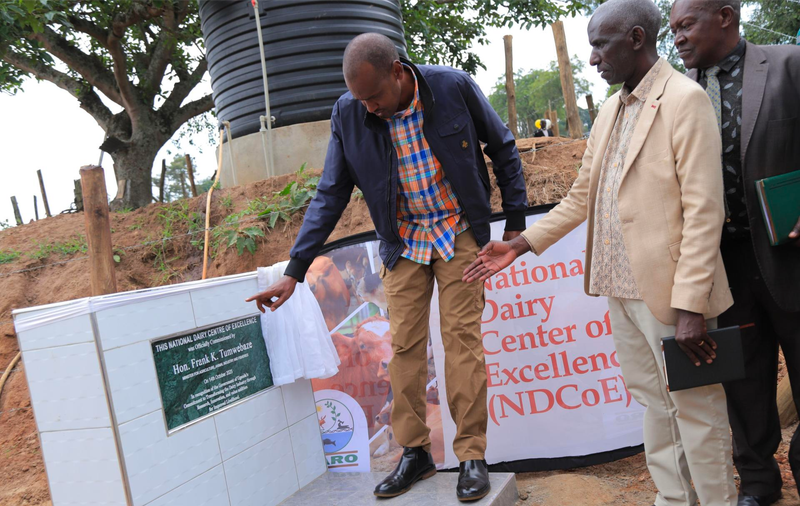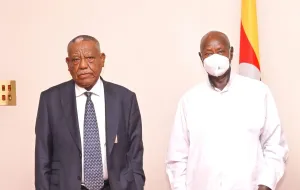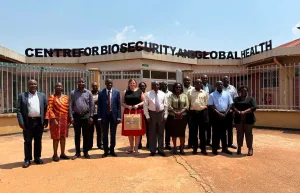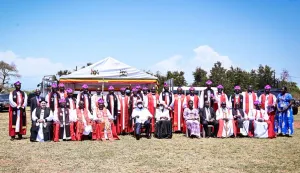
Frank Tumwebaze, the Minister of Agriculture, Animal Husbandry and Fisheries, has officially commissioned the National Dairy Centre of Excellence at the NARO Mbarara Zonal Agricultural Research and Development Institute. The initiative is set to transform Uganda’s dairy industry by promoting sustainable practices, advanced genetics, market development, and inclusive capacity building.
The Centre is envisioned as a driver of innovation in dairy farming, championing climate-resilient and inclusive dairy systems that boost both productivity and sustainability. Dr. Yona Baguma, Director General of NARO, emphasized its role as a key platform for enhancing Uganda’s dairy output, stating it will also serve as a hub for training and empowering farmers to improve efficiency and competitiveness.
Dr. Robert Muzira, Acting Director of the Mbarara Zonal Agricultural Research and Development Institute, noted that the Centre would deliver research-based solutions and support to farmers nationwide. He added that the facility would offer hands-on training to farmers, youth, and extension workers in dairy management, facilitating the transfer of modern technologies to the grassroots for tangible results.
During the launch, Minister Tumwebaze called for a revision of the existing breeding policy to ensure local cattle breeders are actively involved. He expressed concern that the current framework overlooks valuable contributions from skilled community-based breeders.
“Those farmers doing breeding, we need to profile them, license them, and then they add their work onto this center,” he said.
The existing breeding framework operates under the Animal Breeding Act of 2001, which established the National Animal Genetic Resources Centre and Data Bank. This policy aims to enhance animal productivity, regulate the quality of genetic materials, and manage indigenous and modern breeding technologies.
Tumwebaze stressed the importance of enforcing laws against deceptive breeding practices, advocating for legal reforms to protect farmers from fraudulent transactions.
“We should also really even make a law to protect our farmers from fake breeds, actually, people go and buy cattle from the cattle markets, then come and claim it is a high-pedigree, and then ask for a premium price, that's criminal,” said Tumwebaze.
He further proposed collaboration between government and private breeders to uplift breeding standards nationwide.
“If we are here exhibiting the best of the best, it is both the government farm exhibiting what they have and also the private partners, so we must work together to ensure the breeding policy of the country is clear and we should also have a clear law, allow us license private sector breeders to complement what we are doing here, so that we improve the entire country's profile of the breeds,” he suggested.
Catherine Kamwine, the Mbarara City Resident Commissioner, highlighted logistical challenges in the region, particularly the lack of equipment for feed production.
“In this region, at least we were happy that we had four tractors that were given to clusters in the whole region, but the four tractors got damaged, so we need tractors, like hay balers, the chaff cutters and other equipment that we can put our feeds for storage then we would be able to improve our productivity at the farm,” she said.
Local farmer Amos Kamugungunu praised the establishment of the Centre, saying it would significantly enhance dairy production. He noted that the region contributes around 40% of the country's milk, and initiatives like this would further boost output.













Roswell Mbabazi
Leave a Comment
Your email address will not be published.